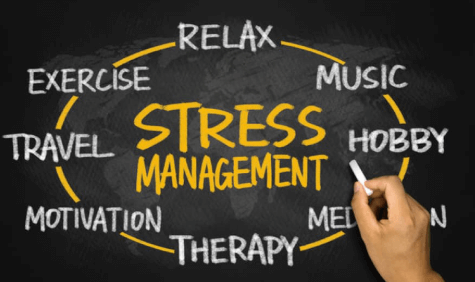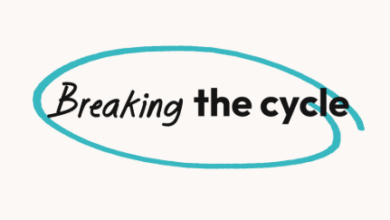Effective Stress Management Techniques for a Healthier Life

Stress is a complex physiological and psychological response to perceived threats or challenges, often referred to as stressors. It can manifest in various forms, including acute stress, which is short-term and often linked to specific events, and chronic stress, which persists over an extended period and can lead to significant health issues. The body’s response to stress involves a cascade of hormonal changes, primarily the release of cortisol and adrenaline, which prepare the body for a “fight or flight” reaction.
While this response can be beneficial in short bursts, prolonged exposure to stress hormones can have detrimental effects on both physical and mental health. The impact of stress on health is profound and multifaceted. Chronic stress has been linked to a range of health problems, including cardiovascular diseases, obesity, diabetes, and gastrointestinal disorders.
For instance, individuals under constant stress may experience elevated blood pressure and increased heart rate, which can lead to heart disease over time. Additionally, stress can weaken the immune system, making individuals more susceptible to infections and illnesses. Mental health is equally affected; anxiety, depression, and other mood disorders often arise as a direct consequence of prolonged stress exposure.
Understanding the intricate relationship between stress and health is crucial for developing effective strategies to manage it.
Identifying Personal Stress Triggers
Recognizing personal stress triggers is a vital step in managing stress effectively. Stress triggers can vary significantly from person to person; what causes one individual to feel overwhelmed may not affect another in the same way. When doing executive coaching in Melbourne, you learn that common triggers include work-related pressures, financial concerns, relationship issues, and major life changes such as moving or losing a loved one.
To identify these triggers, individuals can engage in self-reflection or maintain a stress diary, noting situations that provoke stress responses and the accompanying feelings. In addition to external factors, internal triggers such as negative self-talk or perfectionism can exacerbate stress levels. For example, an individual who sets excessively high standards for themselves may experience stress when they perceive they are falling short of these expectations.
By recognizing both external and internal triggers, individuals can begin to develop tailored strategies for managing their responses to stressors. This awareness not only empowers individuals to take control of their reactions but also lays the groundwork for implementing effective coping mechanisms.
Developing Healthy Coping Mechanisms
Once personal stress triggers have been identified, the next step is to develop healthy coping mechanisms that can mitigate the effects of stress. Coping strategies can be broadly categorized into problem-focused and emotion-focused approaches. Problem-focused coping involves addressing the source of stress directly, such as seeking solutions to work-related issues or improving time management skills.
For instance, if an individual feels overwhelmed by their workload, they might prioritize tasks or delegate responsibilities to alleviate pressure. On the other hand, emotion-focused coping aims to manage the emotional response to stress rather than changing the stressor itself. Techniques such as deep breathing exercises, journaling, or engaging in creative activities can help individuals process their emotions and reduce anxiety.
It is essential to find a balance between these two types of coping strategies; while addressing the root cause of stress is important, managing emotional responses is equally crucial for overall well-being. By cultivating a diverse toolkit of coping mechanisms, individuals can better navigate the challenges that life presents.
Incorporating Regular Exercise and Physical Activity
Physical activity plays a pivotal role in managing stress and enhancing overall health. Engaging in regular exercise has been shown to reduce levels of cortisol, the primary stress hormone, while simultaneously boosting the production of endorphins—neurotransmitters that promote feelings of happiness and well-being. Activities such as running, swimming, or even brisk walking can serve as effective outlets for pent-up energy and tension.
Moreover, exercise provides a structured routine that can instill a sense of control and accomplishment in individuals facing stressful situations. Incorporating physical activity into daily life does not necessarily require a rigorous gym regimen; even small changes can make a significant difference. For example, opting for stairs instead of elevators or taking short walking breaks during work hours can contribute to increased physical activity levels.
Group activities like yoga or dance classes not only provide physical benefits but also foster social connections that can further alleviate stress. The key is to find enjoyable activities that encourage consistency; when exercise becomes a pleasurable part of daily life rather than a chore, it is more likely to be sustained over time.
Practicing Mindfulness and Meditation
Mindfulness and meditation are powerful tools for managing stress and enhancing mental clarity. Practicing applied mindfulness involves being fully present in the moment without judgment, allowing individuals to observe their thoughts and feelings without becoming overwhelmed by them. This practice encourages a greater awareness of one’s internal state and helps cultivate a sense of calm amidst chaos.
Techniques such as mindful breathing or body scans can be easily integrated into daily routines, providing moments of respite from the demands of life. Meditation takes mindfulness a step further by providing structured techniques aimed at fostering relaxation and mental clarity. Various forms of meditation exist, including guided imagery, loving-kindness meditation, and transcendental meditation.
Research has shown that regular meditation practice can lead to reduced symptoms of anxiety and depression while improving overall emotional resilience. For those new to meditation, starting with just a few minutes each day can yield significant benefits over time. As individuals become more comfortable with these practices, they may find themselves better equipped to handle stressful situations with composure and clarity.
Establishing a Support System
A robust support system is essential for navigating life’s challenges and managing stress effectively. Social connections provide emotional support, practical assistance, and a sense of belonging that can buffer against the negative effects of stress. Friends, family members, colleagues, or support groups can serve as valuable resources during difficult times.
Sharing experiences with others who understand similar struggles fosters empathy and validation, which are crucial for emotional well-being. Building a support system requires intentional effort; it involves reaching out to others and nurturing relationships over time. Engaging in community activities or joining clubs based on shared interests can facilitate connections with like-minded individuals.
Additionally, open communication with loved ones about one’s feelings and needs is vital for strengthening these bonds. When individuals feel supported by those around them, they are more likely to cope effectively with stressors and maintain a positive outlook on life.
Setting Boundaries and Prioritizing Self-Care
Establishing boundaries is an essential aspect of managing stress and prioritizing self-care. In today’s fast-paced world, individuals often find themselves overwhelmed by competing demands from work, family, and social obligations. Learning to say no when necessary is crucial for protecting one’s time and energy.
Setting clear boundaries allows individuals to allocate time for self-care activities that rejuvenate their minds and bodies. Self-care encompasses a wide range of practices that promote physical, emotional, and mental well-being. This may include engaging in hobbies, spending time in nature, or simply allowing oneself moments of rest without guilt.
Prioritizing self-care is not selfish; rather, it is an essential component of maintaining overall health and resilience against stressors. By recognizing the importance of personal well-being and actively carving out time for self-care activities, individuals can enhance their ability to cope with life’s challenges more effectively.
Seeking Professional Help when Needed
While many individuals can manage stress through self-help strategies and lifestyle changes, there are times when professional assistance becomes necessary. Mental health professionals such as therapists or counselors are trained to help individuals navigate complex emotional landscapes and develop effective coping strategies tailored to their unique circumstances. Seeking help does not signify weakness; rather, it demonstrates strength and a commitment to personal growth.
Therapy can take various forms depending on individual needs—cognitive-behavioral therapy (CBT), for instance, focuses on identifying negative thought patterns and replacing them with healthier ones. Other therapeutic approaches may include mindfulness-based therapy or interpersonal therapy aimed at improving relationships with others. In some cases, medication may be prescribed to help manage symptoms associated with anxiety or depression.
Recognizing when professional help is needed is an important step toward achieving long-term mental health stability and resilience against stressors in life.




